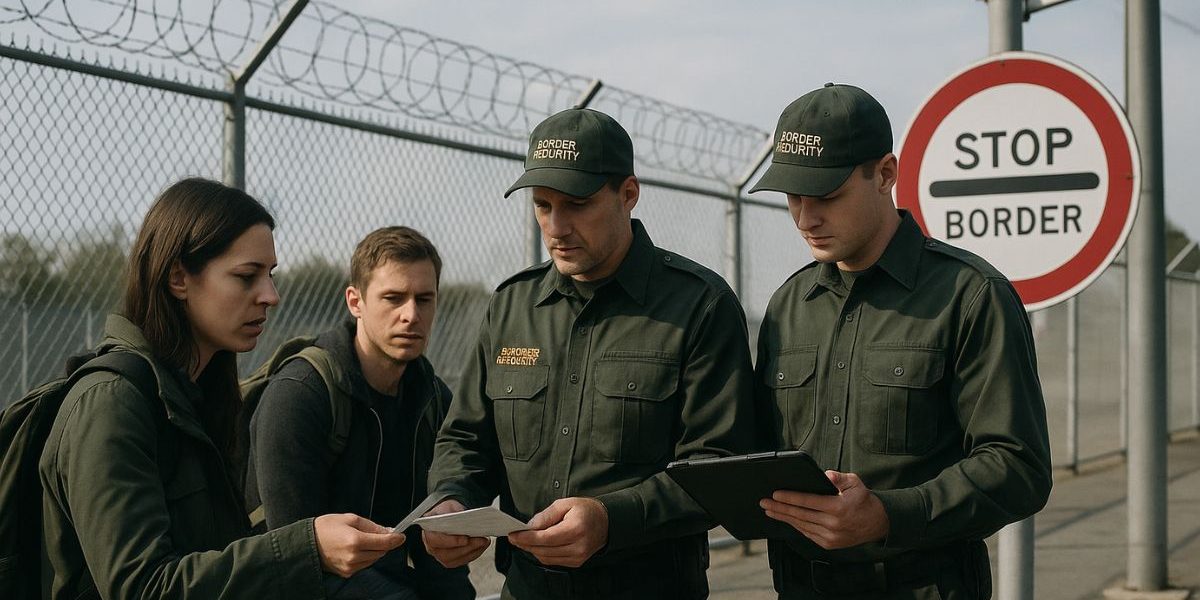Border security is a topic that draws sharp opinions and heated debates. But one issue that often gets overlooked in the bigger conversation is the role of accountability in fraud investigations. When people cross borders using false identities, forged documents, or misrepresented intentions, the consequences ripple far beyond the immediate violation. Holding individuals and institutions accountable for these actions is not just about punishment—it’s about trust, security, and fairness.
Whether it’s visa fraud, fake asylum claims, or document manipulation, these acts challenge the integrity of immigration systems. Governments need to investigate thoroughly, but the process also requires clear oversight. That’s where accountability comes in. It shapes how investigations are handled, how resources are used, and whether the outcomes are just.
Why Accountability Matters in Fraud Enforcement
Here’s what this article covers:
- How accountability improves trust in immigration enforcement
- Challenges investigators face in identifying fraud
- The roles of agencies, auditors, and legal systems in maintaining fairness
- Examples of real cases where lack of oversight raised concerns
By understanding how accountability fits into border fraud investigations, readers can better assess the systems in place and the work still to be done.
What Border Fraud Usually Looks Like
Fraud at borders takes many forms. It can involve using a false passport, lying on a visa application, or working with human smugglers to bypass proper procedures. In some cases, people exploit refugee programs or humanitarian pathways by giving misleading information.
Most governments have checks in place, but the volume of applications and crossings can make it hard to catch everything. Some individuals are coached to give specific answers. Others may use stolen identities or forged paperwork from criminal networks that specialize in these activities.
Agencies like Immigration and Customs Enforcement (ICE) or U.S. Citizenship and Immigration Services (USCIS) are tasked with identifying and stopping these actions. Their work includes document checks, interviews, and cooperation with international partners. But the effectiveness of these efforts depends heavily on accountability.
Investigators Work Under Pressure
Border fraud cases are complex. Investigators must sort through large amounts of data and verify stories that cross languages, borders, and legal systems. They also face political and media pressure, which can affect how investigations are conducted or how long they take.
The key challenge is balancing speed with thoroughness. Acting too quickly can lead to wrongful accusations. Going too slow risks letting real threats go undetected. Accountability ensures that investigations follow procedures that are both fair and accurate.
Internal audits, training, and external reviews can all improve outcomes. These tools help agencies avoid errors and make it easier to explain how and why decisions were made.
Mistakes Have Real Consequences
When fraud investigations go wrong, the results can be serious. Innocent people may be detained, families can be separated, and legal processes may break down. In high-profile cases, errors also damage public trust in immigration systems and enforcement bodies.
At the same time, failure to detect actual fraud carries its own risks. It can lead to public safety concerns, unfair advantages in the immigration process, and a general feeling that the rules don’t apply equally.
That’s why accountability isn’t just about catching wrongdoing. It also protects people from false claims, ensures agencies stay within legal limits, and helps maintain a system that works for everyone.
Oversight Keeps the System Honest
Several layers of oversight can help improve transparency. Internal watchdogs, like the Office of the Inspector General (OIG), monitor how border agencies carry out their duties. Congressional committees may hold hearings or request reports. Independent media and nonprofit organizations also play a role in investigating cases or flagging concerns.
Clear documentation is a big part of this process. When officers document their work properly, it becomes easier to audit investigations, respond to complaints, and improve policies.
Technology is also changing how fraud is tracked. Biometric scans, AI-powered data review, and electronic records make it easier to spot unusual patterns. But these tools still require human oversight. Without that, they risk creating new problems or reinforcing bias.
Accountability Includes Those Involved in Fraud
Holding accountable those who commit fraud is just as important. When cases are proven, there must be consequences. That may include fines, deportation, or criminal charges, depending on the situation. But that accountability must be consistent. If some people are penalized harshly while others are ignored due to political influence or gaps in enforcement, the system loses its fairness.
Governments also work with other countries to identify fraud at its source. For example, if a network in one country is creating fake documents or smuggling people across borders, accountability may require international investigations. This means cooperation between multiple law enforcement bodies and diplomatic channels.
High-Profile Cases Raise Questions
Several past cases have highlighted problems in how fraud investigations are handled. In some, investigators relied too much on faulty data or made decisions without confirming basic facts. In others, people faced long detention periods without being charged.
These examples have prompted calls for clearer rules, better training, and stronger protections for the rights of individuals. Some also led to policy changes or new legal requirements for how investigations must be conducted.
At the same time, there are also cases where fraud went unchecked for too long. Those incidents show how important it is to invest in early detection and support teams that focus specifically on fraud prevention.
The Path Forward
Creating an accountable system doesn’t mean weakening border controls. It means making sure those controls are smart, fair, and well-managed. When people trust that fraud investigations are carried out properly, they’re more likely to support the rules in place.
That trust grows when agencies are open about their work, respond to complaints, and accept responsibility when things go wrong. It also grows when fraud is handled without bias, delay, or unnecessary harm.
By keeping all sides in check—those who enforce the law and those who try to break it—accountability strengthens the foundation of immigration policy.
